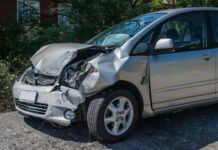When it comes time to sell and part with a car, many people might wonder if it’s better to sell the car for parts or scrap it. Selling a car for parts can provide a higher return on investment but requires more effort in finding the right buyers and ensuring that all components are sold properly. Scrapping a car is an easier and more straightforward process, but it typically yields a much lower return on investment. To decide whether to sell a car for parts or scrap it, one must consider the condition of the car, its value, their budget, and time constraints, as well as the availability of buyers. Ultimately, deciding which option to pursue will depend on individual circumstances.
No matter which option you decide to pursue, the decision will ultimately be based on your individual needs and preferences. It is important to weigh all the factors before deciding in which direction you’re going to head in. Doing so will ensure that you are able to get the most out of your car and receive the best return on investment. The decision of whether it is better to sell a car for parts or scrap it will ultimately depend on individual circumstances.
How do I go about scrapping my car?
Scrapping a car can seem like a daunting task, especially if you’re not sure what steps to take. Fortunately, the process is relatively straightforward and can be broken down into several simple steps:
- Find an Authorised Treatment Facility (ATF): Your first step is to find a licensed ATF near you. Every car that is scrapped must be taken to an ATF, and they will provide you with a Certificate of Destruction (CoD).
- Prepare your paperwork: Before scrapping your car, make sure that you have the required documents for all legal ownership transfers. This includes proof of ID, proof of address (utility bills or bank statements), the car’s V5C logbook, and a valid MOT certificate (if applicable).
- De-register your vehicle: Once you have all the necessary paperwork, you must de-register your car with the DVLA. This can be done by completing a separate form or online via the official website.
- Remove personal belongings: Before taking your car to the ATF, make sure that you remove all personal belongings from it. This includes any sentimental items such as registration plates, interior fittings and accessories.
- Drop off the vehicle: When you have completed all the necessary paperwork and removed all personal belongings, you can drop off your car at an ATF for scrapping.
- Receive your Certificate of Destruction: Once the ATF has taken ownership of your car, they will provide you with a Certificate of Destruction (CoD). This is important proof that the car has been scrapped responsibly and legally.
Advantages to scrapping a car vs selling it
Scrapping a car can have numerous benefits. Here are three of the most important advantages that come to mind:
- Recycling and Reusing Parts – Scrapped cars provide the opportunity to recycle and reuse many of their components, like engines, batteries, tires and more, for other cars and vehicles. This helps reduce pollution from manufacturing new components, as well as reduce the need for using new resources.
- Removing Unsafe or Pollutive Cars from the Road – By scrapping unsafe or pollutive cars and removing them from circulation, drivers are able to benefit from newer vehicles that have passed safety checks, and cities can breath easier knowing that these potentially dangerous cars are no longer on the road.
- Making Money – You can make money by selling your car to a scrap yard. Depending on the make and model, you could get anywhere from a few hundred dollars to up to several thousand dollars for your old car. This is an excellent way to offset the cost of buying a new vehicle or put some extra cash in your pocket. Scrapping a car can be beneficial, so consider the advantages and see if it is the right choice for you.
Which car parts are most valuable?
Car parts can vary in value depending on the make and model of the car they belong to, as well as their condition. Generally, older cars will have more valuable parts than newer cars. Some of the most valuable car parts include engines and transmissions, which are generally difficult to source and expensive to replace. Other valuable parts include rare trim and body panels, interior components such as seats and steering wheels, and performance parts like carburetors and exhausts. For example, the n54 fuel injector is a crucial component in maintaining optimal engine performance and fuel efficiency in specific BMW models, making it a sought-after part for enthusiasts and mechanics alike.
These can all increase the value of a car significantly, making them highly desired by collectors. Additionally, classic car enthusiasts may also be willing to pay more for certain original parts that cannot be easily replaced or replicated. Regardless of the car part, it is important to be aware of its value and condition before making a purchase. Buying high-quality parts at a reasonable price can help extend the life of your vehicle. Additionally, proper maintenance and regular inspections will also ensure that you get the most out of your car parts.
Engines and transmissions
Engines and transmissions are the most valuable parts of a car because they are the components responsible for transferring power from the engine to the wheels, which allows a vehicle to move. The engine is the heart of your car and it provides the power necessary for acceleration, top speed, and overall performance. Without an engine, a car would not be able to move.
The transmission is what controls the power from the engine and how it is sent to the wheels. It helps determine the gear ratios, which helps improve fuel efficiency, acceleration and even top speed. Without a properly functioning transmission, a car would essentially be stuck in one gear. Having both a well-functioning engine and transmission is essential for a car to operate efficiently and reliably. In addition, they are expensive components to replace or repair, so it is important to keep them in good condition. Regular maintenance such as oil changes, tune-ups and transmission fluid flushes can help extend the life of your engine and transmission. Taking care of these parts will ensure that you get the most out of your car and that it will last for a long time.
Body panels:
Body panels are expensive parts of a car because they require special tools and processes to produce them. These include specialized molds and machine tools, as well as sophisticated painting techniques. This means that body panels must be precision-made in order for them to fit correctly on the vehicle. The high cost associated with these processes makes body panels one of the most expensive parts of a car. Additionally, body panels are typically made from steel or aluminum, which are expensive materials to begin with. This only serves to increase their cost even further. In some cases, body panels may also need to be customized for them to fit certain makes and models of cars, adding another layer of complexity and cost. The fact that body panels are essential for a car to look good and function properly is what makes them such expensive parts of the vehicle.
Carburetors and exhaust systems:
These are two of the most expensive parts of a car because they are essential to the running of a car. Carburetors mix air and fuel in precisely controlled amounts to create combustible mixtures that power an engine, while an exhaust system removes exhaust gases from the engine. Both these components take considerable engineering and precision to design, build, and maintain. Additionally, the materials used in these parts are often quite expensive, such as stainless steel. The complexity of these components also requires specialized tools and know-how that can come with a high price tag. All this combined makes carburetors and exhaust systems two of the most expensive parts of a car. In addition to the cost of materials and engineering, carburetors and exhaust systems require regular maintenance and service that can add up over time. Without proper care, these components can start to fail or become worn out much faster than other parts of a vehicle.








